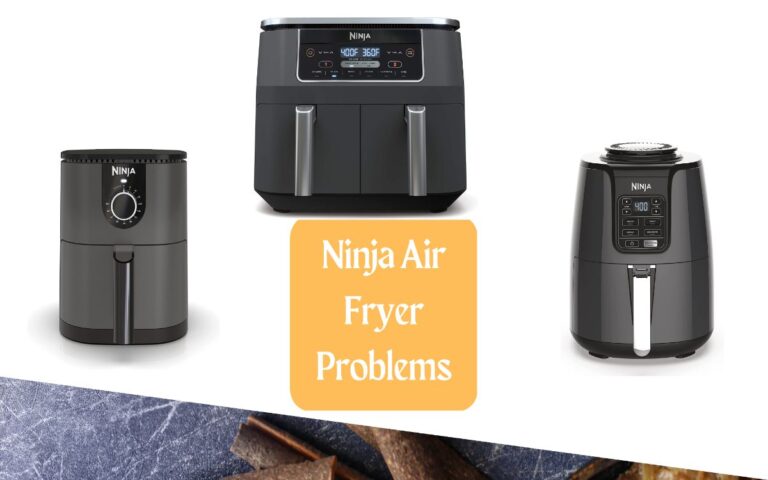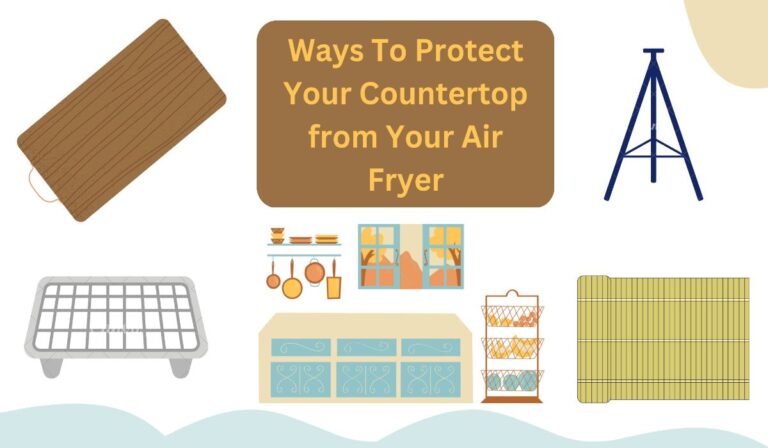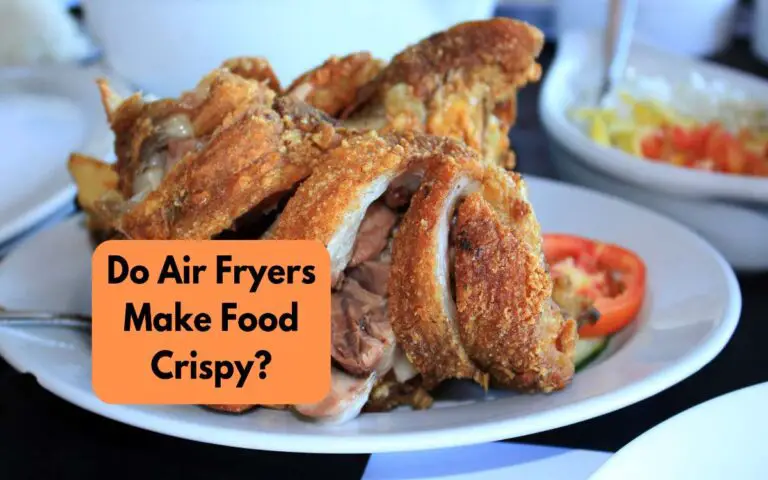Air Fryer Seasoning Mistakes You’re Making
While the air fryer simplifies cooking, achieving perfect flavor requires more than tossing ingredients into the basket.
Seasoning can make or break your dish.
If your air-fried foods are bland, unevenly seasoned, or not meeting your expectations, you might be making some of the air fryer seasoning mistakes.
In this article, we’ll uncover these seasoning mistakes and provide tips and tricks to ensure every meal you prepare in your air fryer is flavorful and perfectly seasoned.
6 Air Fryer Seasoning Mistakes to Know and Avoid
1. Overseasoning
Avoid drowning your food in seasonings when using an air fryer. Too much seasoning can lead to overpowering flavors and a less enjoyable eating experience.
Air fryers circulate hot air around the food to create a crispy outer layer, similar to deep-frying but with significantly less oil.
When you overseason your food, the excess spices burn in the intense heat of the air fryer, resulting in a bitter taste and potentially harmful compounds.
To prevent overseasoning, use a light hand when applying spices to your ingredients.
A good rule of thumb is to season your food as you normally would for stovetop or oven cooking, then reduce the amount by half.
Consider using air fryer accessories such as measuring spoons or spice dispensers to moderate your seasoning.
You can always add more seasoning after cooking if needed.
Additionally, consider using fresh herbs and spices to enhance the natural flavors of your food without overpowering them.
2. Inadequate Pre-seasoning
To ensure optimal flavor and texture in your air-fried dishes, adequate pre-seasoning is crucial for enhancing the taste profile and maximizing the cooking process.
Pre-seasoning involves applying spices, herbs, marinades, or rubs to your ingredients before placing them in the air fryer.
This step allows the flavors to penetrate the food, resulting in a more delicious end product.
Without proper pre-seasoning, your dishes may lack depth and complexity in taste. Simply sprinkling a bit of salt and pepper right before air frying won’t do justice to your meal.
Instead, take the time to season your ingredients generously with a blend of herbs and spices that complement the dish you’re preparing.
When pre-seasoning, ensure that you evenly coat all sides of the food to guarantee uniform flavor distribution.
Pay attention to the ingredients you use and experiment with different seasoning combinations to discover what works best for your palate.
3. Not Layering Flavors
When preparing dishes in an air fryer, the key to enhancing taste complexity lies in the strategic layering of flavors throughout the cooking process.
To avoid this mistake, start by seasoning your ingredients with a base layer of spices before cooking them in the air fryer. This initial layer sets the foundation for the overall taste profile of your dish.
As your ingredients cook, consider adding additional layers of flavor at different stages of the cooking process.
For example, you can sprinkle on extra seasoning halfway through cooking to intensify the taste.
This technique ensures that the flavors penetrate the ingredients, resulting in a more well-rounded and delicious final dish.
Experiment with different combinations of herbs, spices, and seasonings to create depth and complexity in your air-fried dishes.
By layering flavors strategically, you can elevate the taste of your meals and get restaurant-quality results.
4. Ignoring Fresh Herbs
Fresh herbs are an essential element often overlooked that can greatly enhance the flavor profile of your air-fried dishes.
Utilizing fresh herbs like rosemary, thyme, basil, or cilantro can add layers of complexity and freshness to your meals.
When using fresh herbs in your air-fryer recipes, finely cut the herbs to elevate their flavor.
You can also consider adding them towards the end of the cooking process or as a garnish. This way, their flavors remain vibrant and don’t get lost during the cooking.
Experiment with different herb combinations to find what works best for your meals.
Remember that fresh herbs are more delicate than dried herbs, so you may need to use a larger quantity to achieve the desired flavor intensity.
5. Using Damp Ingredients
It is advised to avoid cooking foods with wet batter or very damp ingredients in your air-fryer.
When moisture is present in the cooking process, it creates steam which interferes with the Maillard reaction responsible for the browning and crispy texture desired in air-fried foods.
Before seasoning your ingredients, ensure they’re dried to prevent excess moisture.
Also, ensure the rubs, marinades, and sauces you use in the air fryer have the right consistency and are not runny.
6. Not Using Oil
Oil plays a key role in air frying by promoting better heat conduction, which leads to more even cooking and browning of your food.
Without oil, your ingredients may end up dry and lack that desirable crispiness that air-fried dishes are known for.
When air frying without oil, you also risk your seasonings not adhering well to the food’s surface.
Oil acts as a carrier for spices and herbs, ensuring they stick to your ingredients and infuse them with flavor during the cooking process.
Additionally, the use of oil in air frying helps create a nice golden-brown crust on your foods, adding to their visual appeal.
Make sure to use the recommended oils for air frying to get the best results.
Frequently Asked Questions
Can You Use Frozen Herbs in an Air Fryer?
Yes, you can use frozen herbs in an air fryer. Frozen herbs can be a convenient option for seasoning dishes quickly. Just ensure they are evenly distributed to avoid clumping. Experiment with different herbs for varied flavors.
How Can You Prevent Your Air Fryer Seasoning From Becoming Too Salty?
To prevent your air fryer seasoning from becoming too salty, ensure to measure salt. Over 70% of people unknowingly exceed recommended salt levels in recipes. Use measuring spoons, taste as you go, and adjust accordingly for perfect seasoning.
Can You Mix Different Seasonings Before Adding Them to the Food in the Air Fryer?
Yes, you can mix different seasonings before adding them to the food in the air fryer. Combining seasonings allows for a more complex flavor profile. Be mindful of salt content and balance flavors for a harmonious taste.
What Is the Best Way to Incorporate Fresh Herbs Into Air Fryer Recipes?
To incorporate fresh herbs into air fryer recipes, finely chop them and mix them with oil. Sprinkle the herb mixture over your food before cooking to infuse it with vibrant flavors. Experiment to find your favorite combinations.
Are There Any Specific Types of Oils That Work Better in Air Fryers Than Others?
When using an air fryer, opt for oils with high smoke points like avocado, peanut, or sesame oil. These oils can withstand the heat and won’t break down easily, ensuring your food cooks evenly and crisps up nicely.
Conclusion
Knowing how to properly season your food when air frying helps to unlock the potential of cooking with your air fryer.
By avoiding the common seasoning mistakes, you can transform your air fryer meals from ordinary to extraordinary.
Remember, the key is to experiment and adjust based on your taste preferences.
With these tips in mind, you’ll be well on your way to creating perfectly seasoned, mouth-watering dishes every time.
- Air Fryer Chicken Parmesan Recipes - September 17, 2024
- Air Fryer Sweet Potato Fries Recipes - August 8, 2024
- Air Fryer Seasoning Mistakes You’re Making - July 22, 2024







